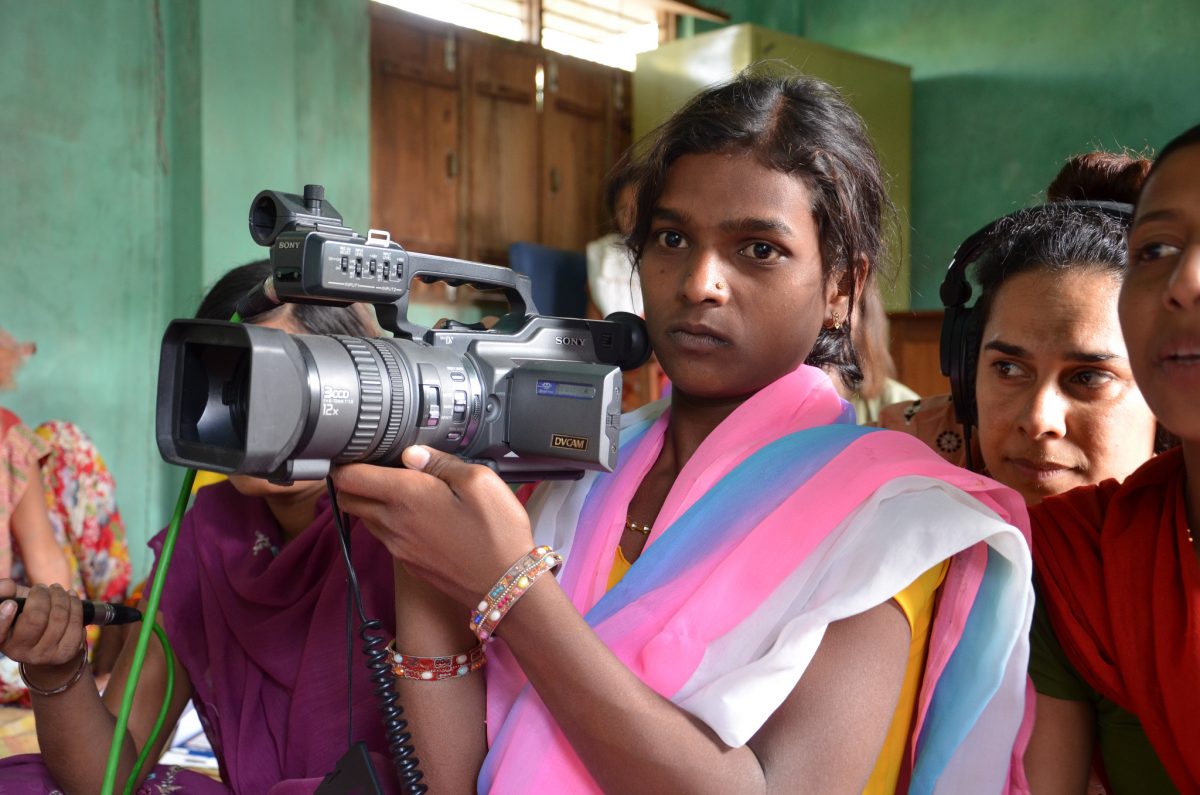Caroline Sweetman introduces the Feminist Values in Research issue
Welcome to the Feminist Values in Research issue of Gender & Development. In May 2018, the journal and the Women and Development Study Group of the UK Development Studies Association co-hosted a seminar on feminist research to celebrate G&D‘s 25th birthday. Lata Narayanaswamy, University of Leeds, and Katy Jenkins, Northumbria University, convened the event and co-edited this issue.
All the contributors to this issue want to see their research contribute to real change for women and girls living in poverty in the global South. They recognise that research into women’s lives and realities is the first and most important step in feminist activism. Articles here come from researchers in academic institutions, policy and practice, including NGOs and private consultancies.
What do feminist researchers have in common? Many things. They base their research in awareness that we live in a gender-unequal world. Yet feminists recognise that context is all (or nearly all): gender inequality plays out in many different ways, and women experience it differently according to their age, life-stage, and other aspects of their identity including race, class, and sexuality. Another thing that it seems feminists have in common is they are less scared than some others when their data reveals complexities, ambiguities, and nuances. Indeed, they expect this!
While feminists recognise the emotive power of a statistic or a catchy soundbite, they know these have their limitations. Global averages conceal as much as they reveal. Feminists seek the exceptional and interview the outliers; ask (and answer) surprising questions; document the telling as well as the typical. In their article here, Loksee Leung and fellow writers focus on the fascinating topic of using quantitative methods of data collection for feminist purposes. Their account of how to do this at each stage of the research process complements to a range of articles here featuring feminist use of qualitative methods. Andrea Azevedo and colleagues talk about using innovative mixed method approaches drawing on the complementary strengths of both ‘quant’ and ‘qual’ in their conversation about feminist monitoring, evaluation and learning in Oxfam.
Feminists are pioneers when it comes to social research methods. They have pioneered the use of innovative action research, which blurs the distinction between ‘researcher’ and ‘researched’, empowering participants to produce materials that can be presented to policy-makers directly. In her article, Leva Rouhani focuses on digital storytelling as a way of influencing community leaders and policymakers in Benin.
Living out feminist values in research in 2019 demands action to change development from within, acknowledging the inherent racism in the sector. For women researchers from the global North, this means giving up power to allow research participants to shape the research process and analysis. Feminist researchers are also taking action to redress the unequal power that exists within research teams. In their article, Dashakti Reddy and colleagues explore the dynamics within their team of international and local researchers researching violence against women in South Sudan.
But are feminist researchers unique in doing all this? As I started to write this blog, a colleague asked me whether I thought there was anything special about feminist research that distinguishes it from plain ‘good research’. It’s true that many politically progressive development researchers who don’t see themselves as feminists are preoccupied with the questions of inequality, exploitation and oppression. True too that many of their organisations are currently interested in the methods and approaches associated with feminist research, as a way to address intersecting issues of race and the colonial legacy in development. But feminist values and approaches are unique – more than just ‘good research’.
First (at the risk of stating the obvious). feminist research has the specific political intent of supporting women and furthering gender equality. It does this by presenting women’s side of the story, speaking truth to power, questioning the unquestioned. So the content and subject matter of feminist research is different. It celebrates women’s strategies to survive and thrive, resist and revolt. It charts the successes and the setbacks on the long journey to gender equality and the full realisation of women’s rights.
Second, feminists employ different theoretical underpinnings to makle sense of the experiences they research and the data they collect. Feminist economics. feminist anthropology, feminist politics, and many other disciplines offer fresh and pressing insights into the damage caused to human beings and our planet by complex, ancient-yet-modern, inequalities of gender, race, and class. An example is the work of feminist economists to theorise the value of unpaid work, challenging ideas that this happens without cost to women and girls. Unpaid care work has now been recognised by the UN for subsidising unequal development, violating women’s and girls’ human rights, and a driver of poverty. This shows how research can change the world, taking us – so very, very slowly – into the new era visualised by the DAWN collective.
We need to make sure that the politics underpinning feminist research are not forgotten, even while we celebrate feminists in research for their innovation and for the usefulness of their work for other social justice struggles. And after the research is done, we cannot let it sit on the shelf. Publishing in a feminist journal like this one is a great way to help ensure your research changes the world for women!

